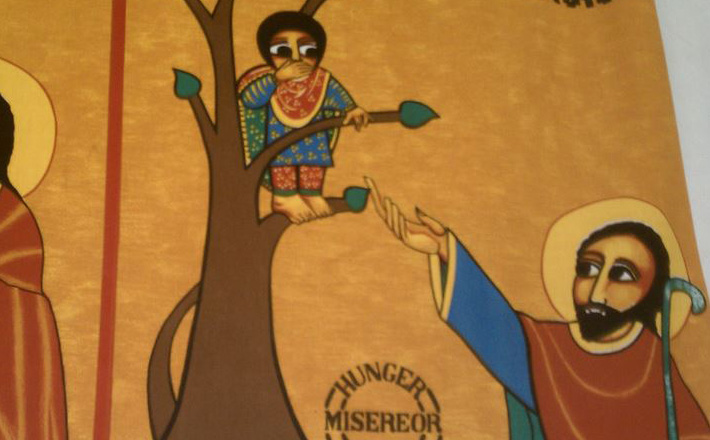Being Uncomfortable with Zacchaeus
When we read a passage
from the bible, one of the important things we need to do is put it back. We
need to constantly put the passage we are reading back within the book it is
set. They are not stand-alone wise sayings. And we need to put it back into the context it
was written, including the wider religious setting. That includes remembering
that all of the bible was written by Jews who wrote out of the Jewish world
view of that time.
I am currently reading
“Short Stories by Jesus: The Enigmatic Parables of a Controversial Rabbi”, by
Amy-Jill Levine. She writes from a Jewish perspective, reminding us that
parables have a long history within the Biblical tradition. Think David and
Nathan. Both within the scripture, and in the rabbinic tradition of reading
that scripture, and within the wider Jewish life, parables were common and
often had echoes of other well-known parables. And they made people uncomfortable.
Think David and Nathan again. She writes that “what makes a parable mysterious
or difficult is that they challenge us to look into the hidden aspects of our own
values, our own lives. They bring to the surface unasked questions, and they reveal the answers we have always known but refuse to acknowledge.” She cautions
against our tendency to find the right meaning of the parable and instead invites
us to be open to multiple interpretations. “When we hear a parable and think, “I
really like that”, or, worse, find no challenge, she warns that we are not
listening well enough.” We might ask what other ways we could hear this story.
This week we have Zacchaeus (Luke 19:1-10). A well-known story. Clearly about repentance. It seems straight forward. And the warning bells start going off and we might read this story again.
How do we feel when we read this story?
Do we read verse 8 in the future tense, as something he will
do in response to Jesus wanting to come to dinner, or in the present tense as a
defence of against the grumbling. Or both? The greek goes either way.
What echoes of other
stories in Luke do we hear?
What uncomfortable questions
does it ask of us?




Comments